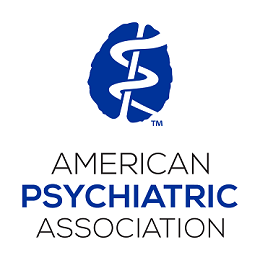APA’s Advocacy Year in Review & Looking Ahead
Thank you for your commitment to APA advocacy!

Executive Branch Activities
APA Provides Input on Health Data, Technology and Interoperability
In the letter, APA provided comments on ASTP/ONC’s efforts to advance interoperability and improve information sharing among patients, providers, payers, and public health authorities. APA provided input on the information blocking exception proposed rules as well as advocated for technical assistance for small, psychiatric-specific health IT vendors. The letter also emphasizes the need for better integration of measurement-based care in EHRs.
APA Advocacy Encourages DEA to Extend Teleprescribing Flexibilities
On Friday October 11, the DEA filed a final rule to extend the tele prescribing flexibilities for a third time since 2020. While not finalized yet, APA is monitoring the situation and will be sharing more as it becomes available. In early September, APA advocated for an extension of the tele prescribing rules, allowing time for the DEA to propose and finalize rules that protect patients while ensuring access to quality mental health care.
Congressional Activities
APA Mobilizes Members Against Step Therapy Protocols
Step therapy, otherwise known as “fail first” therapy, is a harmful medical protocol whereby insurers require patients, sometimes even those stable on a certain medication, to try and fail medications before agreeing to cover the initial therapy prescribed by the health care provider. Not only are these protocols unnecessary and ill-advised – they are harmful to patients and limit the ability of physicians to provide quality, individualized care. APA members wrote to their members of Congress, urging them to support H.R. 2630/S.652, the Safe Step Act. This bipartisan bill requires insurance plans to provide exemptions to step therapy protocols and to implement a clear and timely process for requesting exemptions. Click here for more information, and to write your legislator.
APA Supports STAR Plus Scholarship Act
APA supported H.R. 9581, the Substance Use Disorder Treatment and Recovery (STAR) Plus Scholarship Act, which creates a new scholarship program for students pursuing a degree in the mental health, behavioral health, or substance use disorder treatment profession. “There are simply not enough clinicians to address the mental health crisis in this country,” said APA CEO and Medical Director Marketa M. Wills, M.D., M.B.A. “The APA applauds Rep. Salinas for introducing The STAR Plus Scholarship Act. This critical legislation would help alleviate the behavioral health care shortage and diversify our workforce to enhance access to much needed care.”
APA Backs Bill to Increase Veteran Telehealth Access
APA endorsed H.R. 9324, the Protecting Veteran Access to Telemedicine Services Act of 2024, introduced by Representative Steve Womack (AR-03). The bill would permanently extend the pandemic-related exemption allowing health care professionals employed by the VA to deliver, distribute, and dispense medically necessary controlled substances to veterans via telemedicine regardless of whether that health care professional has conducted an in-personal medical examination.
APA Supports Newborn Supply Kit Program for New Mothers
APA joined 46 organizations in supporting H.R. 8715, the Newborn Essentials Support Toolkit (NEST) Act, led by Reps. Julia Letlow (R-LA-05) and Dr. Kim Schrier (D-WA-08). The bill would codify the Department of Health and Human Services (HHS) pilot program to distribute newborn supply kits to new mothers and their infants. These packages will contain essential goods like diapers, wipes, maternal mental health information, and other resources, and are demonstrated to improve maternal mental health outcomes and reduce financial stress on families. View the full letter of support here.
Partnership Activities
APA and the American Psychological Association Urge Optum Behavioral Health to End Pre-Payment Audits
With members of both APAs seeing an uptick in pre-payment audits, the organizations sent a sign on letter to Optum Behavioral Health outlining our concerns that these audits are conducted without clear protocols, undermine privacy and the therapeutic relationship and negatively impact access to care and urged Optum to end them. Both APAs are continuing to work with Optum to understand more about these audits.
Get to know your state legislators. Keep yourself informed. Find your elected officials.
Scope of Practice & Patient Safety
Many of the tools below are designed to be used for a variety of patient safety issues, including opposing psychologist prescribing and scope expansion legislation from nurse practitioners and physician assistants. APA staff have more talking points, letters, and testimony to assist with this kind of legislation. Please contact Erin Philp at ephilp@psych.org to discuss specific items for your state.
APA Safe Rx Prescribing Webpage
APA Fact Sheet on Safe Prescribing
2022 National Polling on Safe Prescribing
State Specific Social Media Graphics on Safe Prescribing
State Specific Fact Sheets on Safe Prescribing
APA Position Statement on Safe Prescribing
GAO Report: Need for More Prescribing Psychologists is Not Adequately Justified
77 FR 69062 (Medicare does not recognize clinical psychologists to bill E/M services)
APRNs: Don’t Remove Patient Safety Requirements
988 Crisis Response
Reimagine Crisis Coalition Website
State Map of 988 Legislative Activity
Vibrant’s data on call volume during 988’s rollout
988 Frequently Asked Questions | SAMHSA
Collaborative Care Model (CoCM)
APA Model CoCM Legislation for States
APA CoCM Handout for Legislators
APA Position Statement on Integrated Care
Blue Cross Blue Shield Slides in Support of CoCM
Dr. Tynes’ Testimony Before Louisiana House of Representatives (begins at 49-minute mark)
University of Washington AIMS Center: Building the Business Case for Team-Based Integrated Care
Treating the Perinatal Population in the Collaborative Care Model
Mental Health Parity
APA State Model Parity Legislation
Mental Health Parity Infographic
NAIC Letter on MHPAEA Enforcement Grants (naic.org)
Prior Authorization
APA State Model Legislation Reforming Prior Authorization
APA Prior Authorization Infographic
2021 AMA Prior Authorization Physician Survey
AMA Model Legislation on Prior Authorization Transparency
Telehealth
APA Model Telehealth Legislation
APA Position Statement on Telemedicine in Psychiatry
Center for Connected Health Policy State Policies Chart
Gun Violence Response
APA Position Statement on Homicide Prevention and Gun Control
Everytown For Gun Safety Gun Violence Continuum
Advocacy on Medical Licensure
Psychedelic and Empathogenic Agents
APA Letter Opposing Oregon Ballot Initiative to Non-Medical Clinician Administration of Psilocybin


